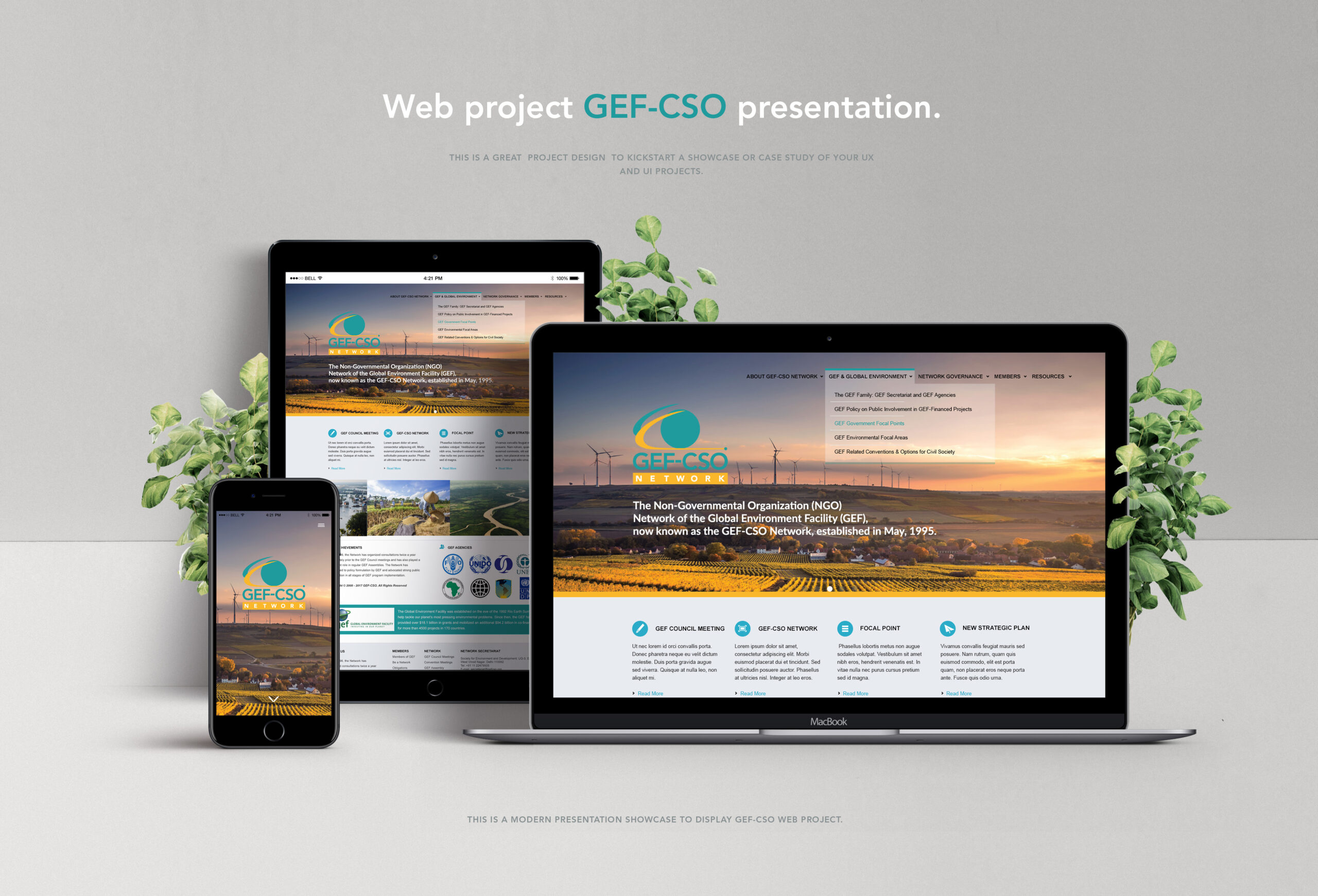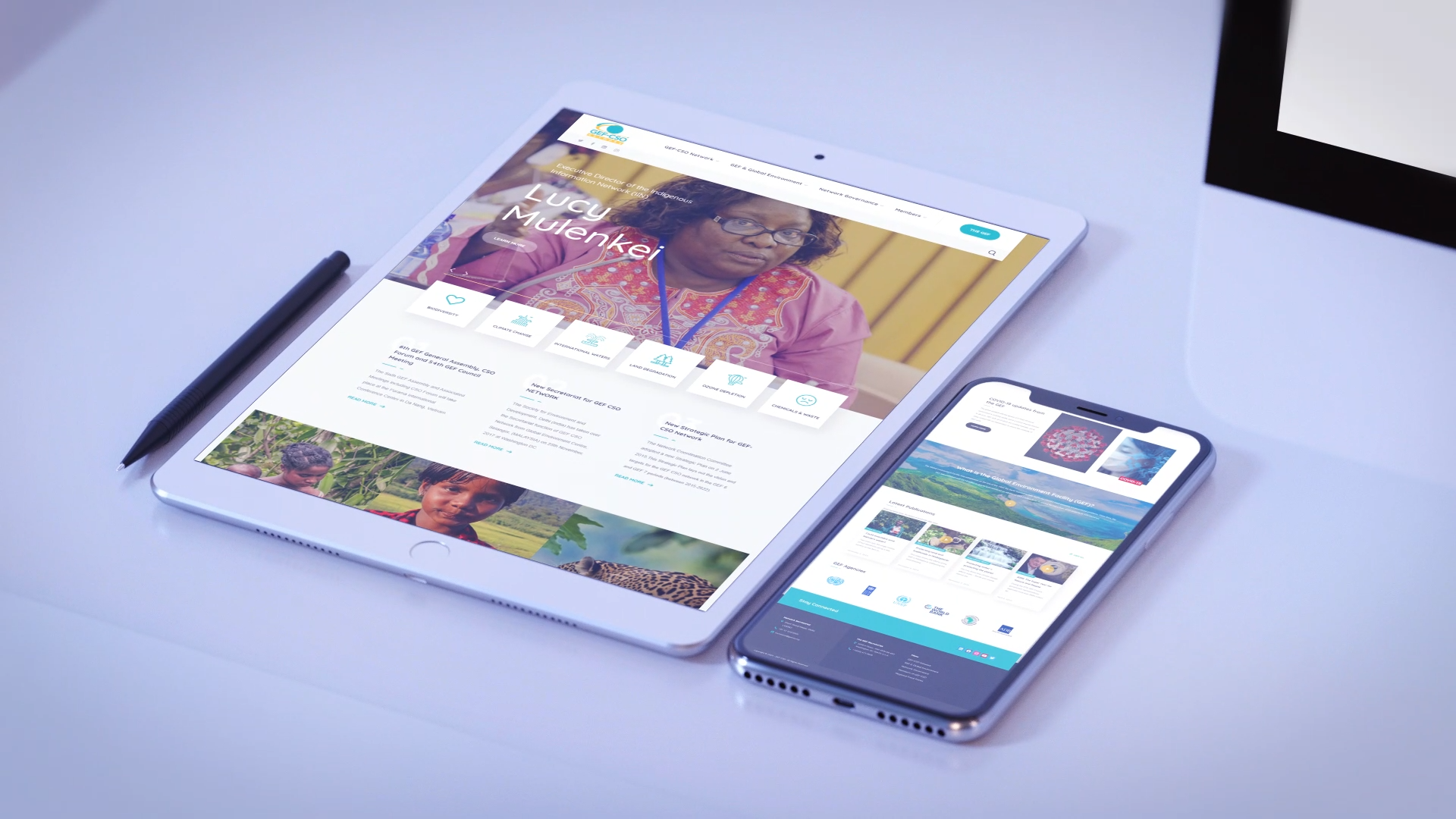Success Case: Website Development for the GEF Civil Society Organizations Network
Client: The Global Environment Facility (GEF) Civil Society Organizations (CSO) Network
Project: Institutional Website Prototyping and Development
Background:
The GEF CSO Network connects civil society organizations (CSOs) globally, promoting their involvement in projects tackling critical environmental issues like climate change, biodiversity preservation, and the protection of international waters. As a platform for CSOs, the Network fosters collaboration, knowledge sharing, and advocacy, supporting initiatives aligned with GEF’s mission. Supported by funds from the World Bank and other entities, the network aims to drive policy input and increased funding for global environmental projects.
Objective:
To create an engaging, accessible institutional website that enhances CSO collaboration, strengthens visibility for GEF’s mission, and provides an interactive platform for information sharing and policy feedback.
Project Duration: 2019-2021
Challenges:
- Extended Project Timeline: The project’s governmental scope required a prolonged timeline, necessitating rigorous planning and ongoing alignment with evolving goals.
- Global Accessibility: The platform needed to be accessible and intuitive to diverse CSOs worldwide, from NGOs to community-based and indigenous organizations.
Strategy and Execution:
Our approach centered on developing a polished, user-friendly website that effectively supports the network’s mission:
- Web Prototyping and Layout: Designed detailed prototypes and layout mockups, ensuring a streamlined and functional user experience.
- Full Website Development: Brought the website to life with a responsive, accessible design tailored to the needs of the CSO community.
- International Collaboration: Facilitated a dynamic online environment for global CSO stakeholders to access resources, provide feedback, and collaborate seamlessly.
Results:
The institutional website for the GEF CSO Network became an essential tool, significantly improving the ease and impact of CSO engagement with GEF initiatives. The platform has enabled CSOs to share resources, contribute to policy discussions, and enhance their capacity-building efforts. The outcome is a strengthened GEF network with a robust online presence, fostering global environmental collaboration.
Conclusion:
This project highlights the importance of effective digital platforms in fostering global partnerships for environmental change. By creating a dedicated space for CSOs to engage, learn, and advocate, the GEF CSO Network website now serves as a vital resource in the international environmental community, advancing impactful and sustainable change.





